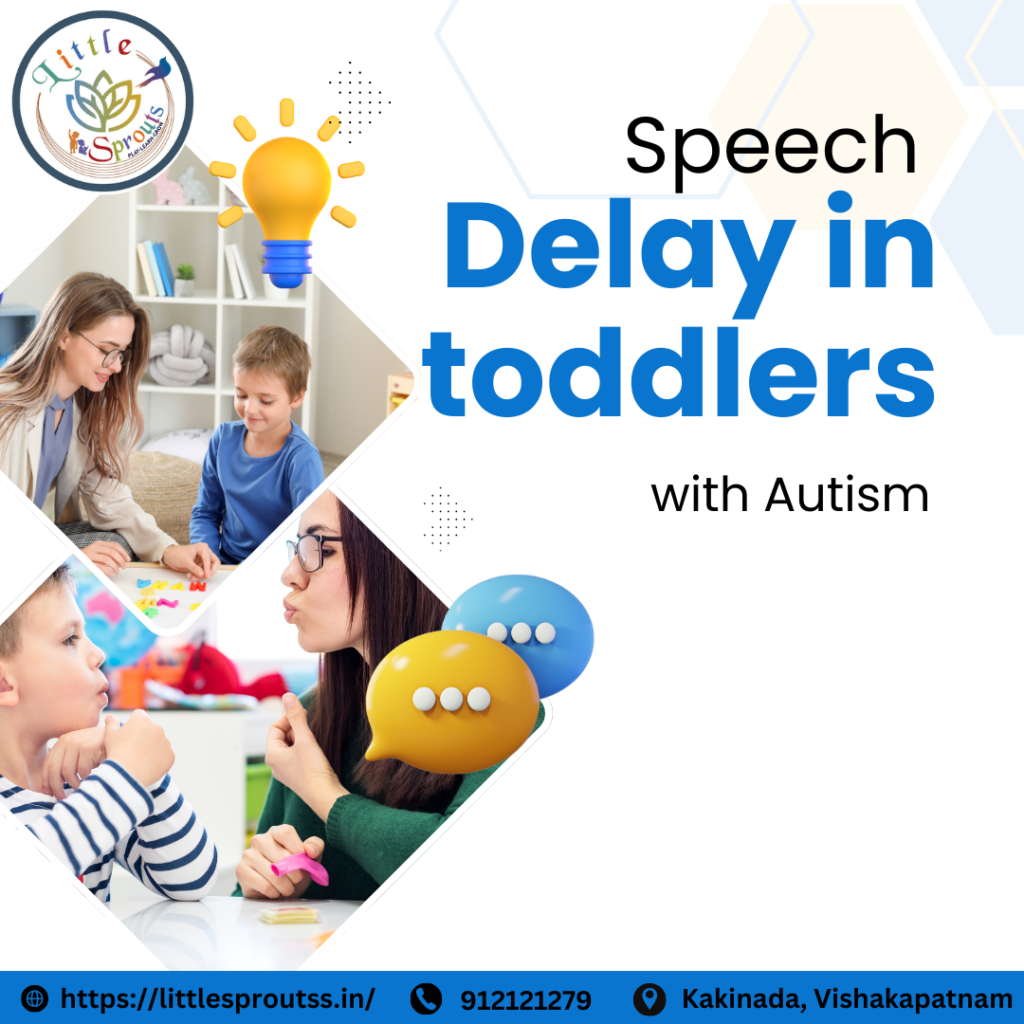
Understanding Speech Delay in Toddlers with Autism
One of the most important developmental milestones in a child’s early years is the development of speech. However, speech delay can be a prevalent problem for toddlers with autism. This article offers parents and carers practical advice by examining the reasons, symptoms, and approaches to address speech delay in toddlers with autism diagnoses.
What is Speech Delay in Toddlers?
When children’s speech and language abilities develop more slowly than anticipated, it’s referred to as speech delay. Some delays, particularly those associated with autism, may need attention, while others may be modest and transient.
How Autism Affects Speech Development
The developmental disorder known as autism spectrum disorder (ASD) affects behaviour, social interaction, and communication. There are several reasons why toddlers with autism may experience speech delays:
- Social Development Communities: Verbal expressiveness may be impeded by difficulties in recognising and reacting to social cues.
- Problems with sensory processing: Toddlers with autism frequently exhibit increased or decreased sensitivity to sensory stimuli, which might affect their capacity to concentrate on language.
- Motor Planning Difficulties: Some autistic youngsters may find it difficult to coordinate the motions required for speech.
Common Signs of Speech Delay in Toddlers with Autism
Recognizing the signs early can make a significant difference in addressing speech delay. Some key indicators include:
- Limited use of words or phrases for their age.
- Repetition of sounds or words without understanding their meaning (echolalia).
- Lack of response to their name or verbal instructions.
- Minimal gestures like pointing or waving.
- Difficulty imitating sounds or actions.
Early Intervention: Why It’s Crucial
Early intervention is vital for improving speech and language development in toddlers with autism. Research shows that addressing speech delay in Toddlers with Autism during the first few years of life can lead to better outcomes in communication and overall development.
Effective Speech Therapy Techniques for Toddlers with Autism
Speech delay in Toddlers with Autism speech therapy plays a crucial role in helping toddlers overcome communication challenges. Some effective techniques include:
1. Picture Exchange Communication System (PECS):
PECS involves using pictures to help children communicate their needs and thoughts. This approach is particularly beneficial for non-verbal toddlers.
2. Modeling and Imitation:
Speech therapists often model words and sounds, encouraging toddlers to imitate them, helping build their vocabulary.
3. Play-Based Therapy:
Incorporating play into therapy sessions makes learning fun and engaging, which can be particularly effective for young children.
4. Reinforcement and Rewards:
Positive reinforcement encourages toddlers to repeat desired behaviors, such as attempting to say a new word.
Technology and Tools for Speech Development
Advancements in technology have introduced various tools to aid speech development in toddlers with autism:
- Speech Apps: Interactive apps like Proloquo2Go and Speech Blubs can assist in building vocabulary.
- Visual Aids: Using flashcards or visual schedules supports language learning.
- Interactive Toys: Toys that encourage verbal interaction can help toddlers practice speech in a fun way.
Common Challenges in Addressing Speech Delay
Despite efforts, some challenges may arise when addressing speech delay in toddlers with autism:
- Consistency in Therapy: Regular sessions are essential but can be difficult to maintain.
- Behavioral Issues: Managing meltdowns or resistance to therapy can be challenging.
- Finding the Right Therapist: Ensuring that a speech therapist understands your child’s unique needs is crucial.
Conclusion of Speech delay in Toddlers with Autism
Speech delay in toddlers with autism can be a challenging journey, but with the right strategies and support, progress is possible. Early intervention, consistent therapy, and a supportive environment can help children with autism unlock their potential in communication. By working closely with professionals and engaging in activities at home, parents can make a positive difference in their child’s speech development.

